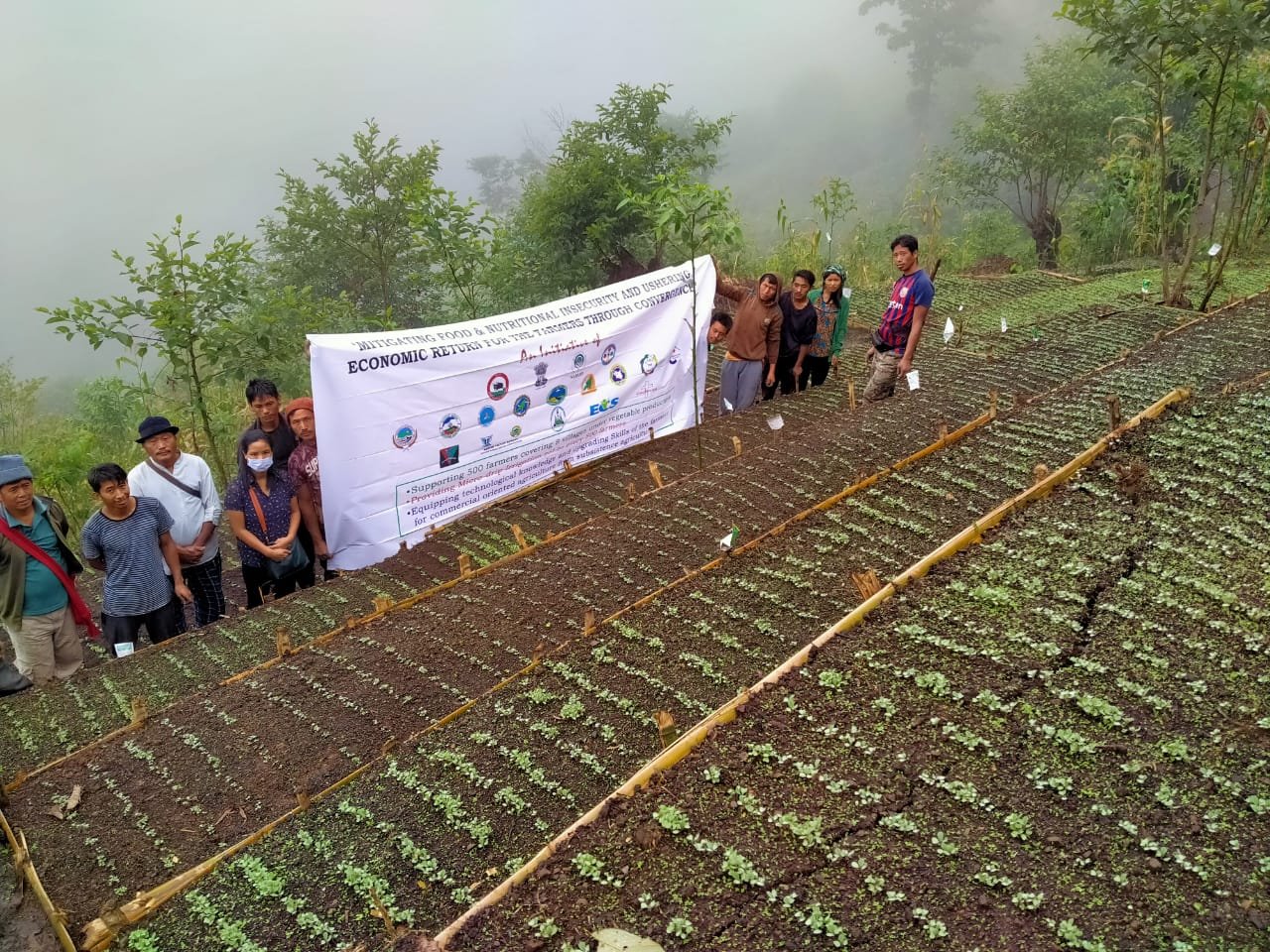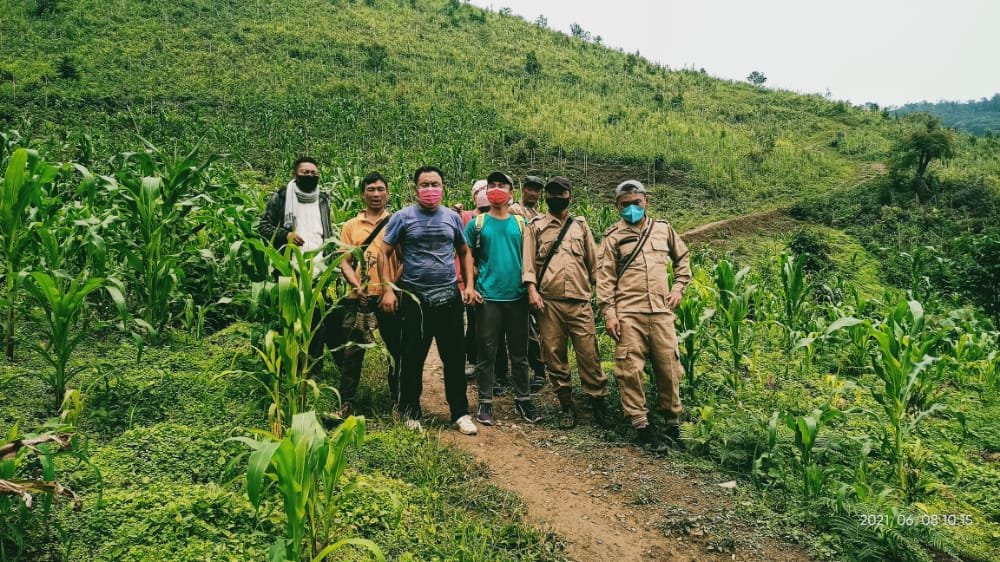© 2024. All rights reserved by ECS | Developed by Free Resource Hub
ECS obtained the Tribal Development Fund (TDF) project sponsored by NABARD in Wanching, in the month of June 2020 and is in its first year of implementation. Under the project, a one-acre orchard is being developed for 200 farmers in Wanching village. The farmers under the project are being trained in the permaculture methodology of farming and will plant a diverse orchard of Litchi and Orange with an intercrop of Banana and Papaya. In addition to these crop trees, a diverse nurse-crop plantation involving glyricidia, sesbania, tree bean, moringa, and pigeon pea, tithonia, aromatic grasses, and mulberry will be undertaken to ensure enduring fertility of the farm while managing pests and providing protection from the elements.
During the covid-19 lockdown period, the project stalled in the initial months however the progress has picked up considerable speed. The farmers were given an exposure visit to Longpang, Tuensang before they began the groundwork in order to show them practically the work done and the results of the previous TDF projects undertaken by ECS. The exposure gave the farmers a lot of inspiration as to taking the work forward in their own village.
Subsequently, multiple field training have been conducted on Organic Agriculture under permaculture and Input Management. The women in the village have been given training on value added products with locally available materials like jams and dried fruits. The farmers are also increasingly coming forward to learn various other agriculture activities like apiculture, mushroom cultivation, livestock rearing (goat and pigs), pisciculture, small ruminant farming (rabbits and guinea pigs), and dairy farming.
In addition, as a consequence of the project and the water harvesting training provided to the farmers, they are coming to terms with the reason for the receding water outputs in their springs being rampant deforestation. Talks are underway among the villagers to help convert the catchment and recharge area of the springs into protected reserve forests where the owners of the land will be the custodians of these reserves and will shift from Jhum cultivation to a forest produced based livelihood built around apiculture and mushroom cultivation.



